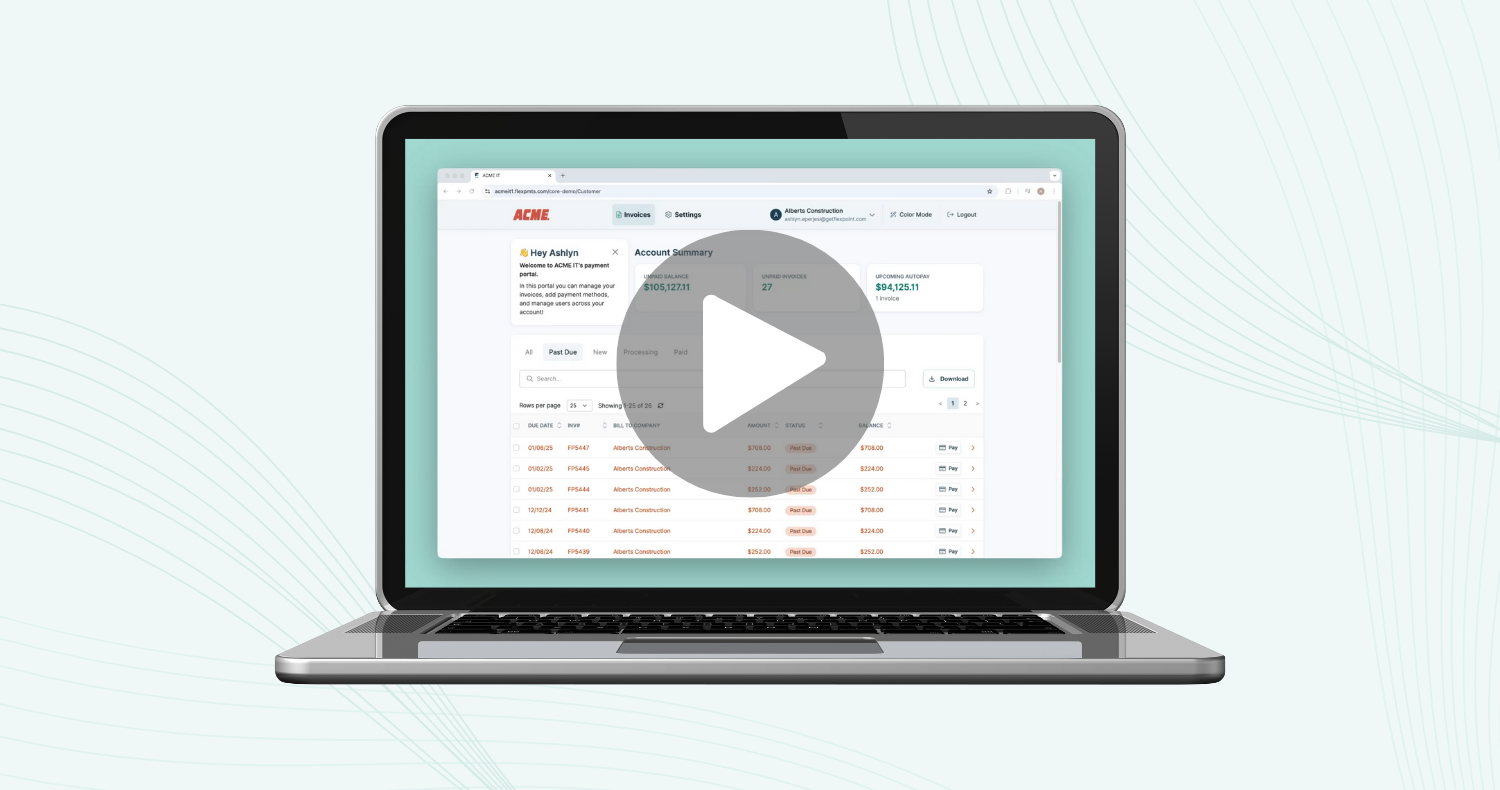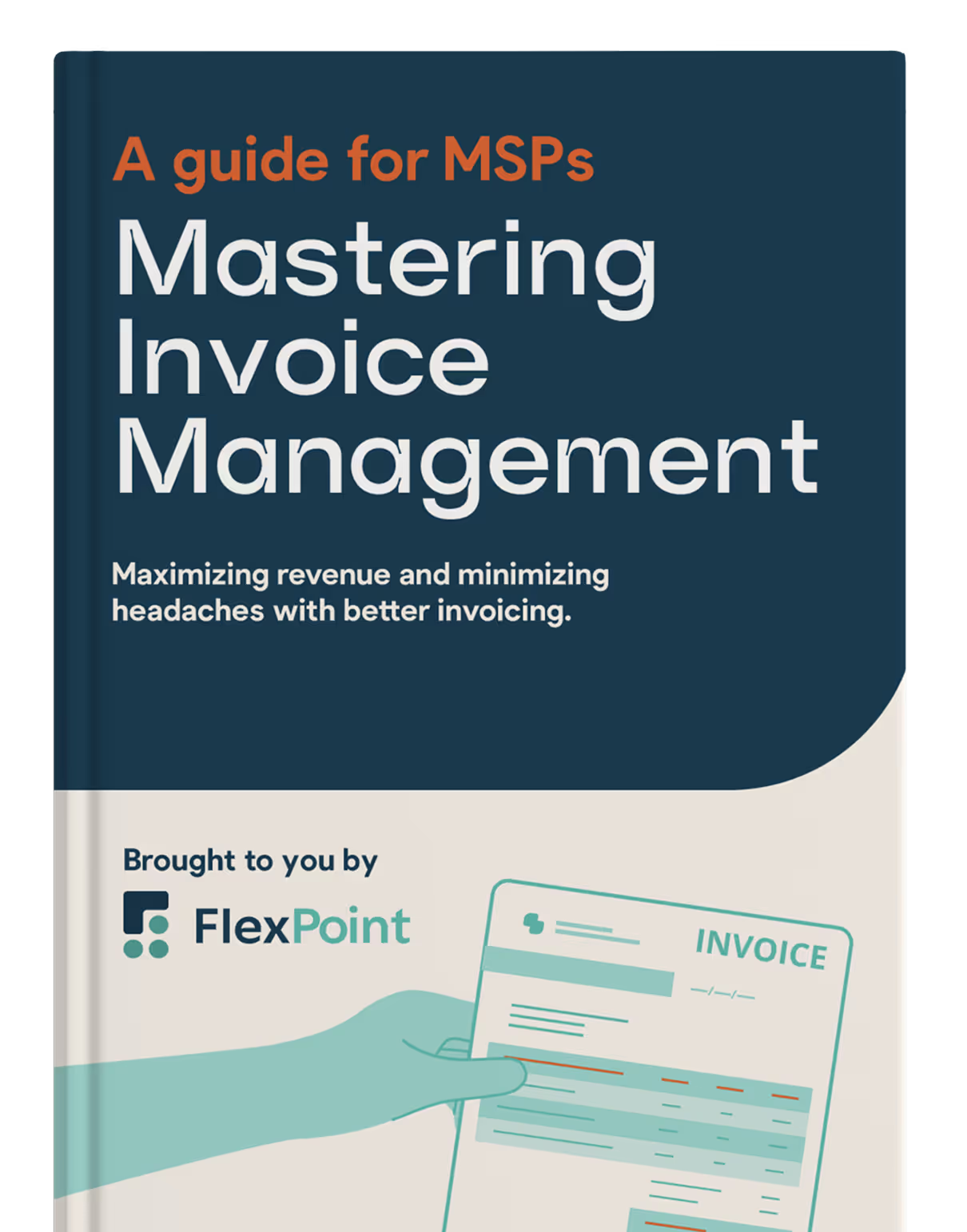Why Time Tracking Integration is Crucial for MSP Billing Efficiency
According to NetAccess, an average MSP bills 100 hours per month. MSP service delivery relies on billing for time spent on client projects, making accurate tracking of billable hours crucial for profitability. From support tickets to project work or on-site maintenance, every task takes time and must be accurately billed.
When MSP time tracking is disconnected from billing workflows, billable hours get missed, invoices are delayed, and reporting becomes messy. These problems come from manual processes, inconsistent time logs, or disconnected tools.
According to the Journal of Accountancy, manual data entry errors range between 1% and 5%. Without effective time tracking, MSPs risk underbilling clients, overworking their teams, and mismanaging project scopes.
Automated billing platforms that integrate with time tracking systems ensure every hour worked is captured, approved, and invoiced without hassle. They sync time data with invoices to reduce revenue leakage and speed up cash flow.
In this article, we explain why integrated MSP time tracking is needed for billing accuracy, operational efficiency, and financial performance. We will also share practical integration strategies to help MSPs stay profitable.
{{toc}}
The Role of Time Tracking in MSP Billing Accuracy
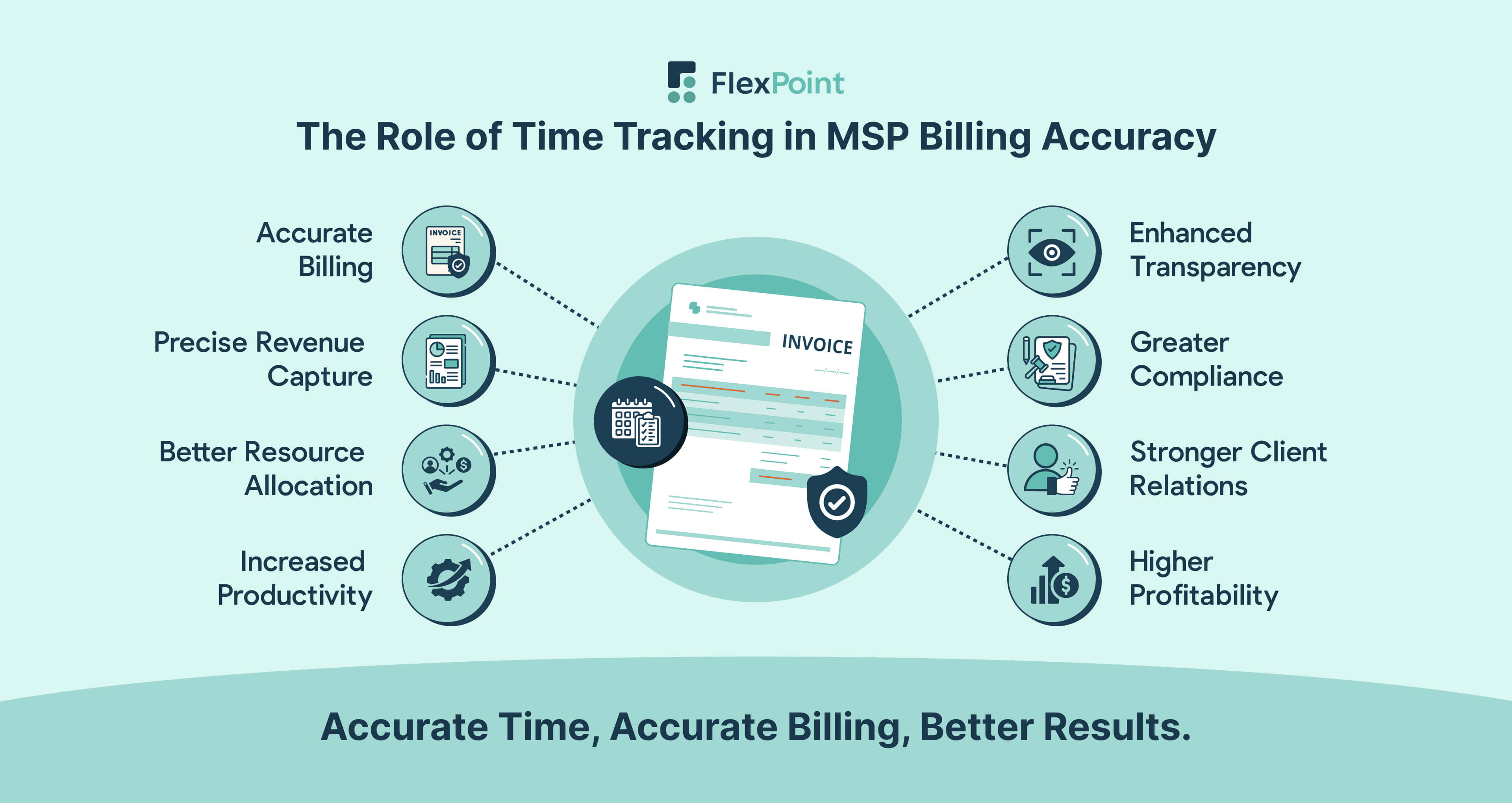
According to Market Research Future, unrecorded work activities result in losses of USD 7.4 billion per day. Precise MSP time tracking helps ensure accurate billing, improves client trust, and optimizes operational efficiency. You must track time spent on all billable work, including recurring services, project-based deliveries, or one-off tasks, to protect your MSP's profit margins.
Recurring tasks, such as routine maintenance or monitoring, are predictable but require regular logging to prevent underbilling.
Project-based work, such as system upgrades or migrations, involves multiple service technicians and phases, so detailed time logs help capture all billable hours.
Ad-hoc services, like emergency support or unscheduled repairs, can easily be missed without real-time tracking.
Tracking time across services, technicians, and clients provides granular visibility into your MSP operations. MSPs can then use these details to generate detailed invoices that clearly outline the work performed, the time spent, and the payment terms as specified in the service agreement, thereby improving client trust.
Technician-level tracking reveals individual contributions, enabling MSP managers to identify inefficiencies or training needs. Client-specific time logs demonstrate adherence to Service Level Agreement (SLA) commitments, such as response times or resolution deadlines, as outlined in the specific client’s agreement.
Service-level tracking identifies service usage trends to highlight the most profitable services and areas for improvement. These insights enable MSPs to demonstrate value to clients, stay compliant, and make informed, data-driven decisions to drive growth.
Time tracking delivers the following operational and strategic advantages to your MSP:
- Accurate Billing: Time tracking ensures that every billable minute is accurately recorded for invoicing purposes. Your invoices, therefore, reflect actual work done to prevent disputes due to overbilling or revenue loss due to underbilling.
- Precise Revenue Capture: Your MSP can maximize revenue by ensuring no service goes unbilled. Time tracking helps identify profitable clients and services, enabling better decisions on pricing, marketing, and offerings.
- Better Resource Allocation: Time data shows which clients, services, or team members use the most hours. It helps you manage workloads more effectively and identify the need to hire, train, or adjust project scope.
- Increased Productivity: Tracking time encourages technicians to stay focused and accountable. It also highlights inefficiencies, enabling you to streamline workflows and eliminate time-consuming tasks.
- Enhanced Client Transparency: Detailed time logs provide clients with a clear breakdown of work performed. It builds trust, reduces billing disputes, and reinforces the value you deliver.
- Greater Compliance: MSPs work under Service Level Agreements (SLAs) or industry regulations, and time tracking helps prove adherence to response times and service obligations. It also supports internal audits and documentation needs.
- Stronger Client Relations: Accurate invoices, along with a transparent record of service delivery, strengthen client confidence in your MSP. It helps you build long-term relations with high-value clients.
- Higher Profitability: Capturing every billable hour increases efficiency and optimizes resource allocation, which improves your MSP’s profit margins. The small-time gains translate into significant financial returns over time.
{{ebook-cta}}
5 Strategies and Best Practices for Integrating Time Tracking with MSP Billing
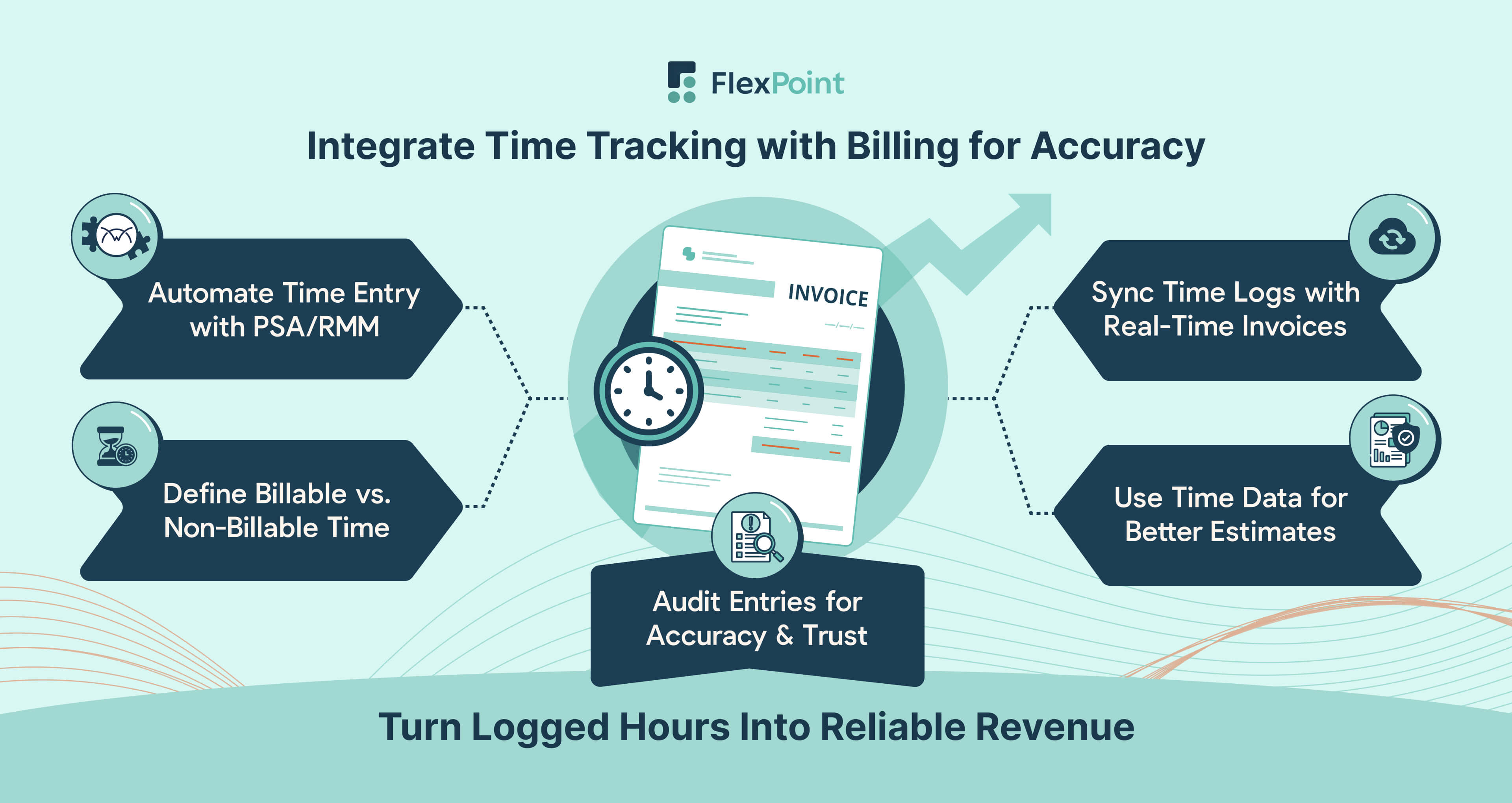
According to FinancesOnline, more than one-third of businesses still rely on outdated time tracking methods like paper timesheets and punch cards, causing inefficiencies and errors. Even with spreadsheets and time tracking software, MSPs struggle to integrate their time tracking data with billing processes, as all data must be manually processed for billing.
Effective time tracking helps achieve billing accuracy, optimize revenue, and maintain client trust. You must systematically record time spent on tasks to eliminate revenue loss from unbilled hours. Integrated time-tracking systems (often in PSA software) provide real-time insights into service delivery, enabling MSPs to generate transparent invoices that detail work performed.
Integrating an automated MSP time tracker with your billing automation system can turn time data into revenue. It eliminates the guesswork and manual entry of time data for invoicing. Every ticket resolved, project task completed, or on-site visit logged is directly translated into billable hours, reducing disputes and maintaining client trust.
Here are 5 strategies to help you integrate time tracking with billing systems effectively:
1. Automate Time Entry with PSA or RMM Integrations
Manual time tracking can be flawed, as time entries are not made in real time and may even be based on approximations and memory. This leads to missed or inaccurate time entries, underreporting billable hours, or incorrectly allocating time to a task or client. An inefficient time tracking process leads to delayed billing cycles and inconsistent invoices.
This is why MSPs must adopt a reliable and efficient automated time tracking system to accurately track billable hours. It ensures that time is not lost or underreported. Integrating a Professional Services Automation (PSA) or Remote Monitoring and Management (RMM) tool with your time tracking system can further streamline the process and improve accuracy. These platforms can automatically log technician time as they work on tickets, attend service sessions, or complete tasks. Time logs can be set to capture timestamps, duration, and task context automatically, eliminating the need for manual input.
Integrating PSA and RMM with your MSP billing system minimizes errors and frees up technicians from administrative burdens. FlexPoint, an MSP-specific billing platform, connects your PSA, RMM, and billing systems into a single workflow. The platform pulls time data directly from tools like ConnectWise, Autotask, SuperOps, or HaloPSA, to match it to service agreements. Accurate billing improves cash flow and reduces disputes.
2. Establish Clear Guidelines for Billable vs. Non-Billable Time
According to Harvard Business Review, companies lose $50,000 per year per employee due to insufficient tracking of time spent on client-related activities. Clearly defining what counts as billable versus non-billable time is essential for accurate billing, as technicians may misclassify time.
For instance, your field or service technicians may overlook time spent reading and answering client emails. They may fail to charge for legitimate work or mistakenly bill for non-billable activities.
Billable time includes activities directly related to delivering services outlined in the service agreement, such as troubleshooting issues, resolving support tickets, implementing solutions, and conducting scheduled maintenance. Non-billable time may include administrative tasks, internal meetings, or training sessions.
Every MSP should maintain a documented framework that outlines billable and non-billable activities. Technicians must understand these distinctions and use the appropriate codes or categories when logging their time in your PSA or time-tracking tool. It ensures consistency across the team and allows you to track productivity accurately.
The clear guidelines also allow your automated time tracker and billing systems to raise transparent and easy-to-understand invoices for clients. Well-documented time logs reduce client disputes due to billing errors, thereby improving client relationships and preventing revenue leakage.
3. Sync Time Tracking with Real-Time Invoicing
According to BluLogix, 5–15% of annual revenue losses are due to fragmented systems and outdated workflows. MSPs using outdated time tracking systems that do not integrate with automated billing platforms risk losing revenue from missed or unbilled services.
If time tracking and invoicing systems operate in silos, transferring approved hours data to billing systems is time-consuming and prone to errors. It creates bottlenecks, leading to billing delays, revenue leakage, and client payment disputes.
MSPs must use time tracking tools that integrate with billing automation systems. You must set up automated workflows that make approved time entries instantly available for invoicing. The billing system will automatically match the entry with the service contract to generate an invoice based on the agreed rate structure in real-time.
Upon successful integration, time logs from PSA or RMM tools are automatically pushed into your invoicing system, eliminating the need for manual data entry or reformatting. Every approved ticket, session, or billable task with accurate time details is captured in real-time.
For instance, FlexPoint integrates with popular PSA and RMM tools. When your technician logs time and it’s approved in the PSA to invoice, FlexPoint automatically pulls the data. As an MSP-specific platform, it seamlessly applies your billing rules, including contract terms, billable rates, and exclusions, to generate ready-to-send invoices.
4. Use Time Data to Improve Project Estimates and Resource Planning
According to CIO Dive, fragmented systems hamper the productivity of 45% of workers. Gathering information from varied systems takes up 20% of their workday. These inefficiencies directly impact profitability by reducing billable revenue and increasing the administrative burden on finance and service desk teams.
Without an effective time-tracking system, MSPs struggle to keep track of how technicians spend their time.
Outdated manual methods like spreadsheets, handwritten notes, or end-of-day recall are time-consuming. These lead to missed billable hours, inaccurate reports, and underutilized team resources.
Delays, forgotten tasks, and vague entries that don’t link to specific services or clients create gaps in your billing data, which take up additional time to fix.
According to Gravity Flow, employers pay for 4.5 non-productive hours per employee each week. This impacts your bottom line, as losing just an hour a day could cost you an estimated $3,750 a year. Automated and accurate time tracking is important to help MSPs monitor how much time technicians spend on each task or client.
A time tracking system helps with project management. By analyzing historical time logs across different clients and service types, MSPs can see how long tasks, tickets, or projects actually take. It removes guesswork when estimating labor for projects or scoping new work. These valuable operational insights also prevent overpromising and underdelivering, which improves client satisfaction and project profitability.
With real-time visibility into your team’s workload, you can better allocate resources and prevent overbooking or burnout. You can also identify and eliminate inefficiencies, such as duplicate tasks or wasted time on low-priority issues.
You can also predict revenue and profit margins more accurately by comparing planned vs. actual hours.
5. Audit Time Entries Regularly for Accuracy and Accountability
MSPs face time theft as technicians may log hours they didn’t actually work, either by padding their hours intentionally or forgetting work details due to poor tracking. Time theft hurts profitability by creating a gap between billed hours and actual work. It also lowers team efficiency, increases labor costs, and causes inconsistencies that can harm client relationships.
According to EPAY Systems, time theft costs U.S. businesses $400 billion annually in lost productivity and profits. For MSPs with multiple technicians, these losses compound rapidly if time is not accurately tracked in real-time. You must audit time entries to maintain billing integrity and accountability.
Regular audits help identify gaps, such as missing time entries for completed work, duplicate entries for the same ticket, and time logged to the wrong client or service category. These issues impact billing accuracy, resulting in overbilling, client distrust, and a loss of recurring revenue.
Instead of relying on manual spot checks, MSPs can use automated tools that flag inconsistencies in time entries. For example, FlexPoint, an MSP billing automation platform, integrates directly with PSA and accounting tools to capture technician time as work happens. It helps maintain audit readiness, client trust, and revenue accuracy.
MSPs can also use these insights to reinforce accountability among technicians by demonstrating that time tracking is monitored and valued.
Conclusion: Strengthening Billing Accuracy and Revenue Assurance with Integrated Time Tracking
Time is money, and every missed or inaccurate billable minute can hurt your MSP's profits. Integrated time tracking ensures that all billable work performed by technicians is accurately recorded and sent directly to the billing system. This removes the need for manual entry, which can lead to mistakes, forgotten tasks, or intentional over-reporting.
By automatically syncing time logs with ticketing tools and invoicing systems, MSPs create a single, reliable source for MSP billing. It leads to clearer invoices, better revenue tracking, improved forecasting, and fewer client disputes.
Accurate time tracking is essential for MSPs to ensure fair billing, avoid disputes, and maintain client trust. It also enhances profitability by facilitating precise project estimates, timely invoicing, and stable cash flow.
MSP billing automation platform FlexPoint streamlines and automates the generation of invoices. It facilitates real-time syncing between time tracking tools, PSA systems, and accounting software. It eliminates manual data entry by syncing billable hours directly from service tickets to client contracts for accurate and faster invoicing.
Ensure every billable hour counts with FlexPoint’s integrated billing and time tracking solutions.
Streamline invoicing, reduce leakage, and boost your MSP’s revenue predictability.
Schedule a demo to see how FlexPoint can improve your operational and financial performance.
{{demo-cta}}
Additional FAQs: MSP Time Tracking and Billing
{{faq-section}}


